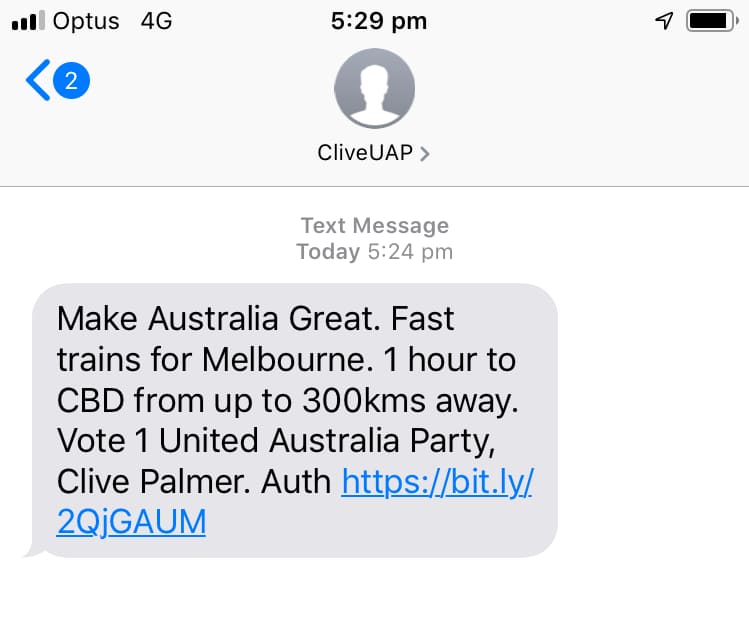
1. If I’m on the Do Not Call Register – can a company still SMS me?
Yes – It is a misunderstanding to think if you are on the Do Not Call Register you will not receive SMS messages.The Do Not Call Register will only opt you out for unsolicited telemarketing calls and faxes. SMS marketing is covered by the Spam Act 2003, and as such, the Do Not Call Register will not prevent you from receiving SMS from any company or organization.
2. Don’t you have to opt in to receiving SMS messages?
According to the Spam Act 2003, getting consent, whether it is express or inferred, is a mandatory requirement for any business or organisation before sending out commercial electronic messages. Opting in is one form of express consent. Examples of this could be filling in a form, ticking a box on a website, talking over the phone, meeting face to face and swapping business cards etc. This gives the right for a business or organisation to send you text messages. Inferred consent, on the other hand, is not that straightforward. Inferred consent can occur via existing business or other relationships. So for example if you are already a customer of a financial institution or a telephone carrier, there is reasonable expectation to receive SMS or emails from these organisations telling you about their products and services. Another type of inferred consent can occur via conspicuous publication of a work-related electronic address because it is accessible to the public or a section of the public.However, some organisations – government bodies, registered political parties, registered charities and educational institutions are exempt from the Spam Act, so the above consent requirement does not apply to them.
3. Companies in Australia cannot send messages from a Sender ID
Many comments questioned if it is legal to send the text message from a Sender ID, like CliveUAP as in this instance. The Spam Act 2003 actually covers the identify condition and as long as the messages sent clearly and accurately identify the organisation, there is no rule against using a sender ID to send text messages.
4. Why do I receive an error message when I try to reply the message?
Many recipients of the campaign attempted to respond to the message but could not. That is because the networks only recognise numbers. So if you try to reply to a message from a Sender ID, which is what was being used in this campaign, depending on your phone and it’s operating system, you will either not have the option to reply or you will see an error. If you are concerned about the legitimacy of an SMS you receive from a business in future, there are a few things to look for and actions you can take if you do not wish to receive any more messages from them.
Does it contain an opt out option?
It is a mandatory requirement in the Spam Act for every commercial electronic message* (so a sales, marketing or promotional message) to contain an ‘unsubscribe’ facility. Most companies and marketing professionals know their legal requirements and would not risk huge fines by breaking the law. So if you receive a marketing/sales type message from a known brand and it does not have an opt out – be suspicious as it could be sent from a scammer. If in doubt, don’t click on any links, contact the company or simply delete the message.*Purely factual messages – like meeting minutes and product recall notices, are partially exempt from the Spam Act and do not need to meet the consent or unsubscribe condition.
If you don’t want to receive these type of SMS messages – reply Stop
As it is a legal requirement to include an opt out facility for commercial messages, you will likely to see at the end of the SMS something like “Opt out? Reply Stop”.If you don’t want to receive any more messages, just reply with Stop, and only Stop – nothing else. This is because SMS systems like Esendex will recognise your STOP and automatically add your number to an opt out list to prevent that customer sending you any more messages.If you reply with anything else, like “please stop” or “Stop, I don’t want these messages”, the system will not detect your opt out and you may continue to receive messages.It is also good to know that if you send another message, that is in effect you opting in to receive messages again.
What if you don’t know the company or you are wondering why they are messaging you?
First of all be sure that it is not from organisations that are exempt from the Spam Act. Organisations like government bodies, registered charities, registered political parties and educational institutions are exempt from the Spam Act and therefore are not required to get consent or to provide an opt out option. It is possible for a typo to be made somewhere, or for someone to provide a fake number that happens to be your number – you could just ignore the SMS. If there is an option to opt out, you can take it; if not, and particularly if you receive multiple unwanted messages, contact the company to let them know they have the wrong number. Most companies would be more than happy to remove your number from their system as it does cost them money to send text messages. For further information and queries about the Spam Act 2003, visit www.acma.gov.au or contact us on 1300 764 946 if you have questions about your SMS campaign.

